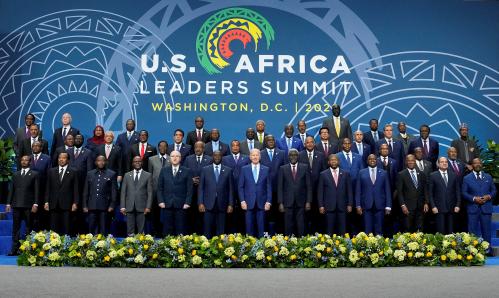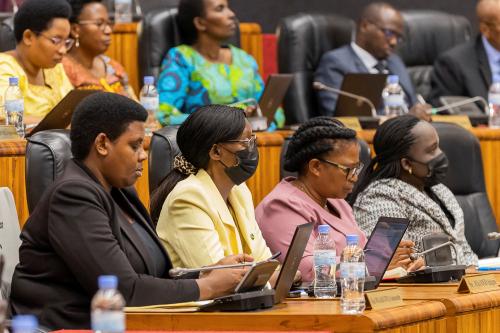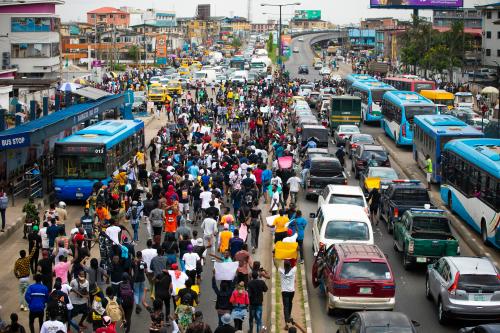In December 2021, President Biden’s administration hosted the first Summit for Democracy, which resulted in the Presidential Initiative for Democratic Renewal that encompassed about a dozen different programs that the United States government aspired to support with $424.4 million. From March 29-30, the U.S. will partner with countries on diverse continents to co-host a second Summit for Democracy. Zambia is the designated African partner country and will join fellow co-hosts Costa Rica, the Netherlands, and South Korea. The choice of the southern African nation is not surprising given widespread international praise of Hakainde Hichilema, Zambia’s president, who won the 2021 elections and quickly moved to transform the country’s image. After years of democratic backsliding under his predecessor, Hichilema recently repealed a draconian law against defaming the president that was frequently used to imprison opposition leaders and activists. He also established a new debt management office, with input from civil society, to enhance transparency over foreign borrowing.
Democratic backsliding remains a concern
The summit is timely for Africa. According to Afrobarometer’s polling in 34 countries, a majority of African citizens prefer democracy over alternative forms of government. And besides Zambia, there are some other recent bright spots, such as Niger, which experienced its first peaceful handover of power between civilian governments last year. Nonetheless, recent analysis from the Varieties of Democracy project notes that 79 percent of sub-Saharan Africa’s population continues to reside in regimes classified as electoral autocracies—regimes that hold elections for chief executive but do not meet standards of free and fair elections—or closed autocracies. There is a temporal dimension to these characterizations as well: The Ibrahim Index of African Governance uncovered that one-third of Africa’s population reside in a country where political participation, rights, and inclusion significantly deteriorated in the last five years. In fact, some of the erstwhile democratic champions in the region have reversed course. President Macky Sall of Senegal, for instance, continues to obfuscate about whether he will run for an unconstitutional third term in next year’s elections despite strongly opposing his predecessor’s efforts to do so more than a decade ago.
Preparations for key elections in 2023 are worrying
Several pivotal elections in 2023 also highlight the democratic vulnerabilities for the region. Trust in the integrity and capacity of electoral commissions remains especially problematic in many countries. Nigeria’s recently concluded general elections are a case in point; the Independent Nigerian Electoral Commission had raised high expectations about voter transparency due to its use of an electronic voter accreditation system. Yet, it violated its own electoral act by failing to transmit the results electronically to its IReV portal, raising public doubts about vote rigging. Large-scale protests erupted in late 2021 in the Democratic Republic of the Congo over concerns about the independence of the new head of the National Independent Electoral Commission (CENI). Insufficient funding to the CENI, combined with ongoing unrest in the east of the country, has prompted suggestions that this year’s polls may be postponed. In Madagascar, the United Nations has opted not to establish a basket fund to pay for the $33 million requested by the electoral commission to implement elections scheduled for the end of this year. This decision is based on, among other reasons, a lack of confidence in preparations thus far, uncertainty over how past resources were used, and a failure to implement election observer recommendations from the 2018 elections during which Russia mounted a sizeable disinformation campaign in the country.
Skewed boundary delimitations of electoral constituencies remain another challenge to defending democracy in the region and risk delegitimizing elections. Few expect Zimbabwe’s elections in July 2023 to be free or fair, but civil society and opposition leaders are even more skeptical given the new electoral boundaries delimited by the Zimbabwe Electoral Commission and adopted as law in late February 2023. The boundaries favor constituencies that historically support the ruling Zimbabwe African National Union-Patriotic Front. Similarly, Sierra Leone’s opposition has condemned the results of last year’s census, the results of which are used for delimiting constituency boundaries for the June 2023 elections. The census exercise, from which the World Bank and EU withdrew their support, appears to cut in half the population of the capital city, Freetown—an opposition stronghold—while the population in the incumbent party’s stronghold has grown.
Nascent anti-corruption efforts need political buy-in
Beyond electoral dynamics, there are deeper concerns about the performance of democracies. Corruption, for instance, is at the heart of African public dissatisfaction with the performance of democracies, and it has been used as a justification for several of the coups in recent years. As a result of the first democracy summit, several anti-corruption efforts have been launched with a particular focus on enabling civil society and media to expose malfeasance and enhance transparency. While these efforts and those of anti-corruption champions are necessary, they are far from sufficient in the absence of incentives that disrupt the political settlement that fosters public waste. South Africa’s Zondo report, for instance, has been deemed one of the most extensive audits of any government’s finances, revealing vast amounts of patronage within the ruling African National Congress. Yet, despite South Africa’s robust civil society and strong oversight institutions, very little effort has been made to address state capture, resulting in the country being added to the Financial Action Task Force’s “grey list” in late February for financial crimes and money laundering. Similarly, at the first democracy summit, Malawi committed to supporting oversight institutions, explicitly agreeing to enhance the independence of the Anti-Corruption Bureau (ABC). A year later, the director of the ACB was arrested and suspended from her job hours before arrest warrants were issued for several top officials believed to be involved in corrupt activities.
What to expect from the democracy summit
For all these reasons, the expectations from this second democracy summit must be modest. It will undoubtedly offer an important opportunity for civil society organizations, media, industry, and some governments to showcase accomplishments and share tactics for navigating closed political spaces. Hopefully, there will also be information about whether pledges from the first summit materialized and how resources were used. However, the growth of summitry as a tool of geopolitical relations with the continent, by not only the U.S. but also the EU, China, Russia, and soon the U.K., increasingly makes explicit the stark incongruence across different development and governance goals for the region. For instance, during the 2022 U.S.-Africa Leaders Summit, the magnitude of pledges offered far outweighed the resources pledged under the Presidential Initiative for Renewal, and there was minimal discussion of democracy. Human rights advocates protested that some of Africa’s most autocratic leaders, such as Equatorial Guinea’s 40-year ruling dictator, were invited to the event. This second democracy summit will still be symbolically important. Yet, without fundamentally addressing some of the incentive structures of political elites to bias elections, undermine oversight institutions, or enable intra-party corruption, it cannot be expected to prevent democratic backsliding or assuage African citizens’ disillusionment with democratic performance.
The Brookings Institution is committed to quality, independence, and impact.
We are supported by a diverse array of funders. In line with our values and policies, each Brookings publication represents the sole views of its author(s).








Commentary
What is the relevance of a second democracy summit for Africa?
March 28, 2023